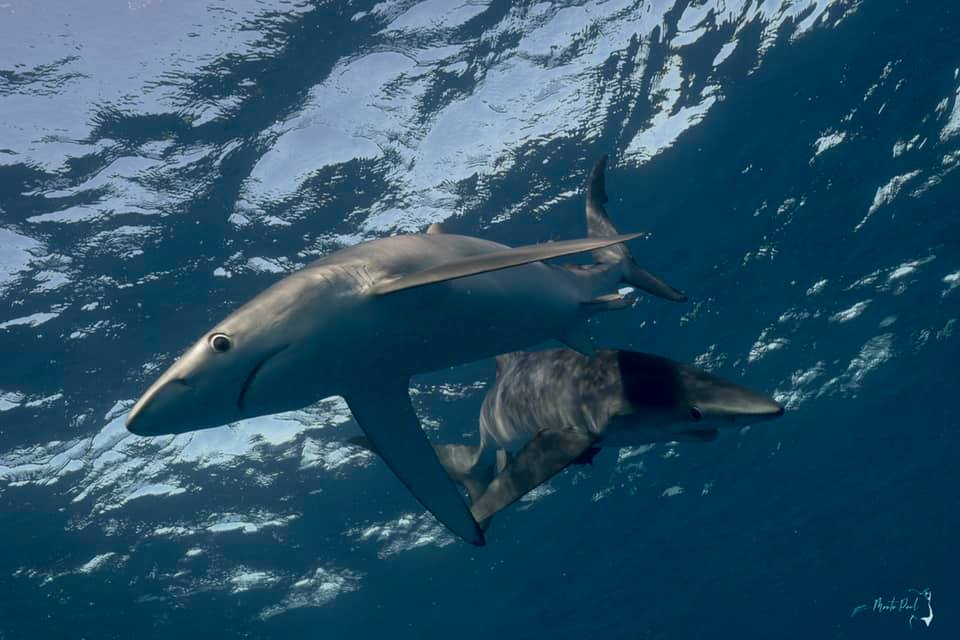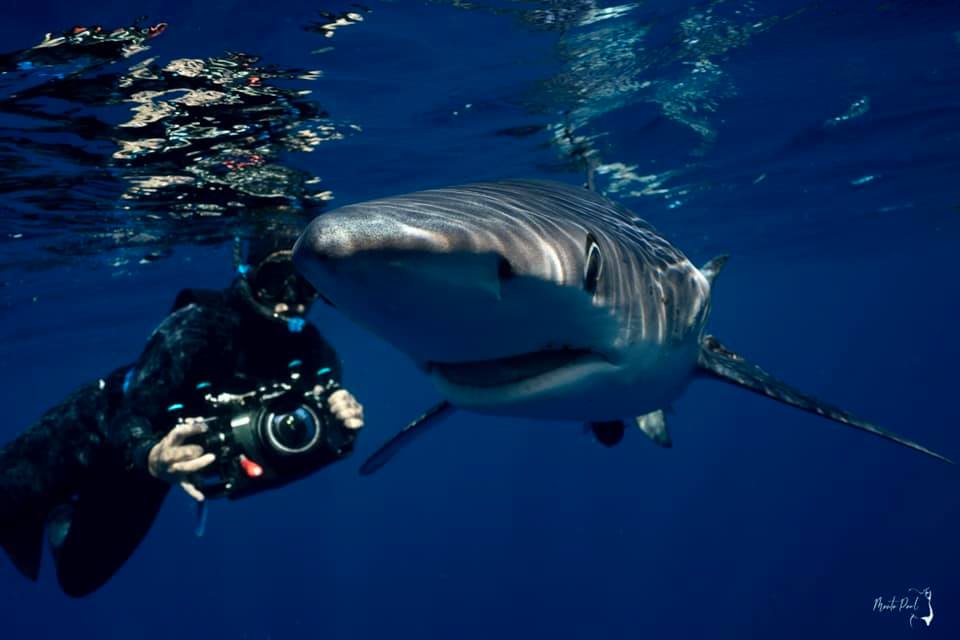Blue sharks are inquisitive predators that roam the open waters worldwide. They can live in cold temperate or tropical waters. This pelagic species prefer to stay in deep waters, far from the coast. Want to see these marvelous creatures up close? Join Baja Shark Experience on our next swim with sharks Cabo San Lucas. These glorious sharks captivate divers from around the world with their inquisitive and bold nature. They also make great photography subjects.
Physical traits

Why are they called blue sharks? They get their name from the iridescent cobalt blue color of their skin which glows in the sunlight. This hue is prominent on its upper body while its sides have a lighter shade of blue with a white underside. The color is an advantage to this species because it’s a good form of camouflage in the open ocean.
Mature blue sharks are larger than their male counterparts. The former usually weighs around 27 to 55 kg while the latter can weigh around 93 to 182 kg. Despite their large size, blue sharks prefer small prey.
Favorite prey
These slender sharks have large, mesmerizing eyes that give them a vision advantage when going after their target food. Blue sharks like hunting in deeper waters to seek for squid, cuttlefish, and octopus. They also have an appetite for fish, shrimp, crabs, and lobsters. When an opportunity presents itself, blue sharks will not pass up on small sharks. Equipped with distinctive upper serrated teeth that overlap each other, blue sharks are formidable predators.
Behavior

Blue sharks are highly migratory. They are known to take on long journeys across oceans in search of better hunting grounds and to find potential mates. During the mating season, blue sharks from different places come together for a brief period to reproduce through internal fertilization.
The mating ritual is rough as the male bite hard on the female. This is the reason why nature equipped the female blue sharks with thicker skin for added protection. A female can give birth to a huge number of live pups but rarely going beyond 100.
In Baja California, blue sharks play an important role in marine tourism. Swimming with these beautiful animals is a sought-after activity that are ideal for nature and adventure-loving people.
Threats to blue sharks
These apex predators are often caught accidentally in gillnet and longline fisheries. Blue sharks are also victims of illegal shark finning activities because their fins are used to make the shark fin soup delicacy. This gruesome practice of severing the shark’s fin while it’s still alive and throwing it back to the water to die a slow death is shunned by many. However, the black market still caters to the sale of shark fin. Shark meat is also considered an exotic ingredient by some cultures. Sadly, many species are threatened with extinction because of the demand for their body parts.
Sharks need our help to put a stop to this overexploitation. Baja Shark Experience supports shark conservation efforts. By promoting sustainable shark encounters, we help raise awareness about the important role that these animals play in our oceans and coastal communities.
